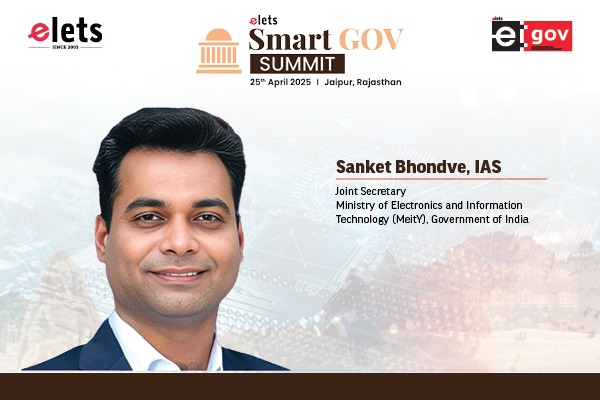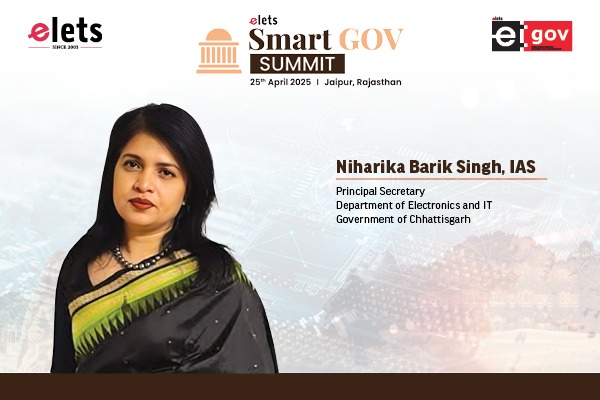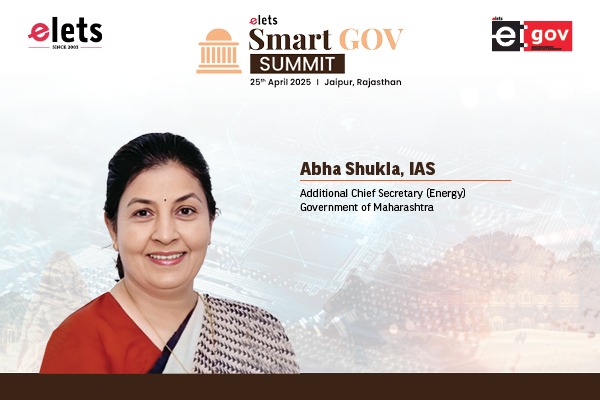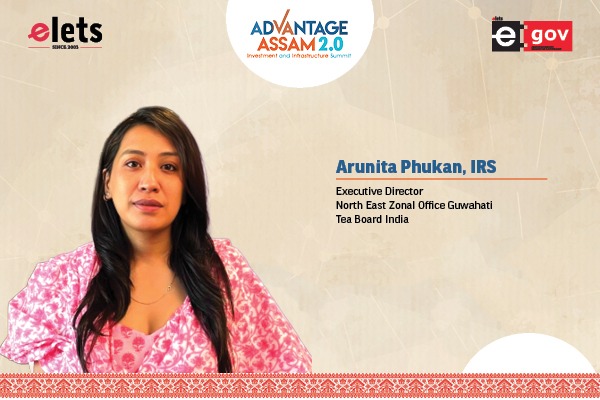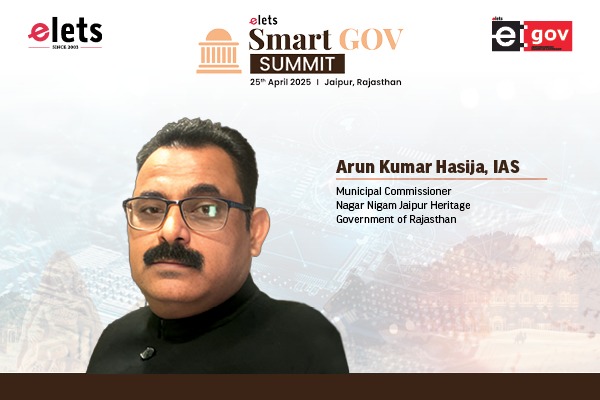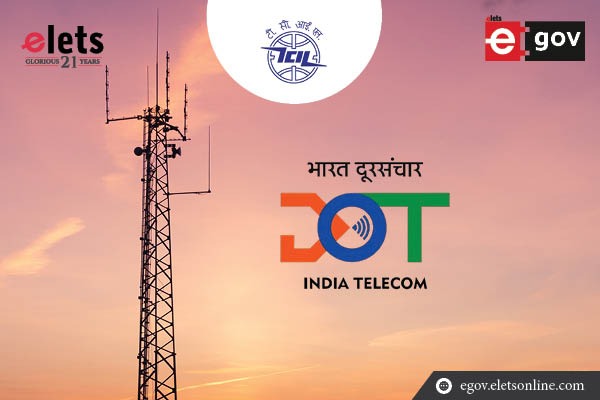
Telecom services have been recognised globally as vital tools for a nation’s socio- economic development, and telecom infrastructure is also considered a crucial factor to realise socio- economic objectives in India. The Department of Telecommunications (DoT), under the Ministry of Communications, Government of India, is the principal body responsible for regulating and overseeing the telecommunications sector in India. It has been instrumental in shaping India’s telecommunications landscape through its diverse functions, including policy formulation, licensing, spectrum management, and infrastructure development. Through these measures, the DoT ensures that India’s telecom sector remains robust, competitive, and aligned with national development goals. Its efforts in promoting research, providing financial assistance, and administering telecom laws further enhance the sector’s growth and align it with national and global standards.
Vision & Mission
DoT’s vision is to provide secure, reliable, affordable, and high-quality converged telecommunication services anytime and anywhere for accelerated inclusive socio- economic development.

DoT’s mission is to develop a robust and secure state-of-the-art telecommunication network providing seamless coverage with a special focus on rural and remote areas for bridging the digital divide and thereby facilitating socio-economic development; create an inclusive knowledge society through the proliferation of affordable and high-quality broadband services across the nation; reposition the mobile device as an instrument of socio-economic empowerment of citizens; make India a global hub for telecom equipment manufacturing; promote development of new standards to meet national requirements; attract investment, both domestic and foreign and promote creation of jobs.

DoT Origin
The Government of India set up the Telecom Commission vide the Resolution dated 11th April 1989 with administrative and financial powers of the Government of India to deal with various aspects of Telecommunications. The Government, vide Resolution dated 22nd October 2018, re-designated the ‘Telecom Commission’ as the ‘Digital Communications Commission’.

The Digital Communications Commission is responsible for:
• Formulating the policy of the Department of Telecommunications for approval of the Government;
• Preparing the budget for the Department of Telecommunications for each financial year and getting it approved by the Government & Implementation of Government policy in all matters concerning telecommunication.
• Established to ensure that the nation’s telecom infrastructure is developed and maintained in a manner that supports socio- economic growth and technological advancement, the DoT performs many crucial functions. Some of the core functions are as follows:

1. PolicyFormulation and Implementation
The DoT is primarily responsible for formulating and implementing policies related to the telecommunications sector. This includes creating frameworks for the operation and growth of telecom services, setting standards for service quality, and ensuring that policies align with national objectives. The department plays a critical role in shaping policies that promote a competitive market environment while safeguarding the interests of consumers.
2. Licensing and Regulation
One of the core functions of the DoT is to issue licenses for various telecom services and infrastructure. This includes:
• Telecom Service Providers: Operators provide voice, data, and other services.
• Infrastructure Providers: Entities responsible for developing telecom infrastructure, such as towers and fibre networks.
• Internet Service Providers (ISPs): Providers offering internet connectivity to consumers
The DoT also regulates these licenses to ensure compliance with the established norms and standards, including maintaining service quality and adhering to operational guidelines.
3. Spectrum Management
A crucial aspect of India’s telecom future Spectrum management is a critical area handled by the DoT. The department is responsible for:
• Allocation: Distributing radio frequency spectrum to various telecom operators and service providers.
• Auction: Conducting auctions for spectrum rights, including those for emerging technologies like 4G and 5G.
• Reallocation: Reassigning spectrum to optimize its use and support new technology deployments.
4. Infrastructure Development
The DoT oversees telecom infrastructure development to ensure comprehensive coverage across the country. This includes:
• Planning and Coordination: Facilitating the development of infrastructure projects and coordinating with various stakeholders to ensure timely execution.
• Support for Rural Areas: Promoting initiatives to extend telecom services to remote and underserved regions, thereby enhancing connectivity and reducing the digital divide.
5. Consumer Protection
Protecting the interests of consumers is a fundamental aspect of the DoT’s mandate. The department works to:
• Ensure Fair Practices: Monitor and enforce regulations that protect consumers from unfair practices by telecom operators.
• Address Complaints: Provide mechanisms for addressing grievances related to telecom services, ensuring that consumers have access to redressal mechanisms.
By focusing on consumer protection, the DoT helps build trust in the telecom sector and ensure a positive user experience.
6. Coordination with Other Government Bodies
The DoT collaborates with various governmental and regulatory bodies to achieve its objectives, including:
• Coordinate with TRAI: Work with the Telecom Regulatory Authority of India (TRAI) to implement regulatory decisions and policies.
• Inter-Ministerial Collaboration: Coordinating with other ministries and departments to align telecom policies with broader government initiatives.
This coordination helps streamline the regulatory process and ensures that telecom policies support national development goals.
7. Promotion of Research and Development
The DoT supports research and development (R&D) in the telecom sector to foster innovation. Promoting R&D is crucial for driving technological progress and ensuring that India remains at the forefront of telecom advancements. The promotional measures involve:
• Encouraging Technological Advancements: Fostering technological advancements such as 5G, IoT, and broadband.
• Providing Financial Assistance: The DoT provides financial support to further research and education in telecommunications. This includes:
-Assistance to Institutions: Financial aid to institutions and universities for advanced scientific study and research.
-Scholarships and Grants: Scholarships for students in educational institutions and other forms of financial aid to individuals, including those studying abroad in telecommunications- related fields.
8. International Cooperation
International cooperation helps India align its telecom policies with global best practices and leverage international expertise. In an increasingly globalized industry, the DoT engages in international cooperation to:
• Participate in Global Forums: Represent India in international telecom forums and standard- setting organizations.
• Collaborate with Other Countries: Work with international counterparts to harmonize standards and practices and to foster bilateral and multilateral agreements.
9. Administration of laws concerning any of the matters specified in this list, namely:
• The Indian Telegraph Act, 1885 (13 of 1885);
• The Indian Wireless Telegraphy Act, 1933 (17 of 1933); and
• The Telecom Regulatory Authority of India Act, 1997 (24 of 1997).
10. Supporting National Goals
The DoT’s functions align closely with India’s national goals, including the vision of an Atmanirbhar Bharat (Self- Reliant India). The department supports economic growth, job creation, and technological advancement by advancing the country’s telecom infrastructure. The DoT’s initiatives contribute to realising a digital India where every citizen can access reliable and high-quality telecom services.
Be a part of Elets Collaborative Initiatives. Join Us for Upcoming Events and explore business opportunities. Like us on Facebook , connect with us on LinkedIn and follow us on Twitter, Instagram.
"Exciting news! Elets technomedia is now on WhatsApp Channels Subscribe today by clicking the link and stay updated with the latest insights!" Click here!





